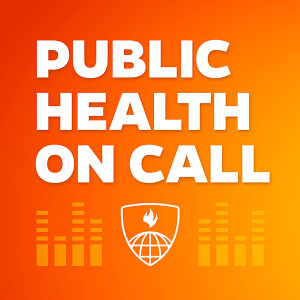
775 - How to Make Cities More Mental Health Friendly for Adolescents and Young Adults
 2024-07-01
2024-07-01
Our mental health and well-being are shaped by our environment: access to green space can be beneficial, while cities with high population density can affect the risk for mood, anxiety, or even substance use disorders. A recent study explores how cities can be more mental health-friendly for adolescents and emphasizes the importance of life skills, open-minded interpersonal relationships, safe public spaces, secure employment, and youth-inclusive policy-making.
Guest:Dr. Pamela Collins is a Bloomberg Centennial Professor and chair of Mental Health at the Johns Hopkins Bloomberg School of Public Health.
Host:Stephanie Desmon, MA, is a former journalist, author, and the director of public relations and communications for the Johns Hopkins Center for Communication Programs, the largest center at the Johns Hopkins Bloomberg School of Public Health.
Show links and related content:-
Making cities mental health friendly for adolescents and young adults—Nature
-
Research Identifies Characteristics of Cities That Would Support Young People’s Mental Health—Johns Hopkins Bloomberg School of Public Health
-
World Mental Health Day: Mental Health is a Universal Human Right—Johns Hopkins Bloomberg School of Public Health
Have a question about something you heard? Want to suggest a topic or guest? Contact us via email or visit our website.
Follow us:-
@PublicHealthPod on X
-
@JohnsHopkinsSPH on Instagram
-
@JohnsHopkinsSPH on Facebook
-
@PublicHealthOnCall on YouTube
-
Here's our RSS feed
More Episodes
 2024-03-27
2024-03-27
 2024-03-20
2024-03-20
 2024-03-14
2024-03-14
 2024-03-13
2024-03-13
Create your
podcast in
minutes
- Full-featured podcast site
- Unlimited storage and bandwidth
- Comprehensive podcast stats
- Distribute to Apple Podcasts, Spotify, and more
- Make money with your podcast
It is Free
- Privacy Policy
- Cookie Policy
- Terms of Use
- Consent Preferences
- Copyright © 2015-2024 Podbean.com





